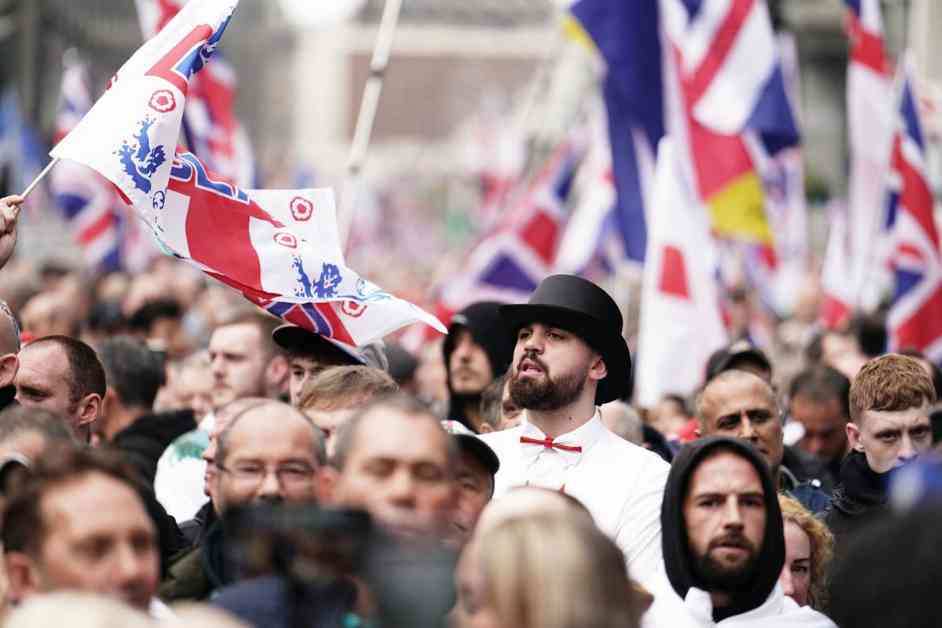Support Helps to Tell the Story
The recent clashes at Tommy Robinson and anti-racism protests led to four arrests, with tensions running high between the two opposing groups. The day of protests took a turn when Robinson was remanded in custody and missed his own event. Despite his absence, his supporters gathered in central London, displaying anti-immigration placards and voicing their opinions.
On the other side, the anti-racism counter-protest organized by Stand Up to Racism saw a massive turnout, with notable figures like Jeremy Corbyn and Diane Abbott addressing the crowds. However, the peaceful protest was marred by two arrests, one for common assault and another for assaulting an officer. Additionally, an arrest was made for a racially aggravated public order charge, although it is unclear which protest the individual had attended.
Robinson, whose real name is Stephen Yaxley-Lennon, is facing charges of contempt of court for allegedly violating a High Court injunction by publicly screening a film in Trafalgar Square. This is just one of six alleged breaches between June and July. Furthermore, he was separately charged for refusing to provide his mobile phone access code to authorities under the Terrorism Act 2000.
The Metropolitan Police and British Transport Police had a significant presence at the demonstrations to prevent any clashes between the two groups. Despite the efforts to keep the factions apart, tensions were high as Robinson’s supporters marched with flags and banners, calling for his release and criticizing political figures like Keir Starmer.
The protests highlighted the deep divides within society, with both sides passionately advocating for their beliefs. The clashes serve as a reminder of the ongoing challenges around issues of immigration, racism, and free speech. As we navigate these turbulent times, it is crucial to engage in constructive dialogue and seek common ground to address these complex issues.












